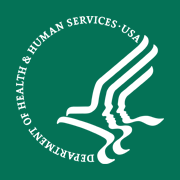55 Hospitals File Two-Midnight Rule Lawsuit Against HHS

- The healthcare industry is burning the two-midnight oil. Fifty-five hospitals filed a lawsuit last Friday against the Department of Health and Human Services (HHS) regarding the two-midnight rule’s 0.2 percent inpatient compensation cuts and increased revenue concerns.

Under the two-midnight rule – a Medicare Cinderella rule of sorts – if inpatient rates for treatment do not cover the timespan of two midnights, hospitals will not receive Medicare reimbursement.
The vague rule is problematic when it comes to matters of hospital payment, plaintiffs say within the lawsuit.
It is unclear if the rule adopts a time-based approach, plaintiffs state. There is also contradiction within the rule regarding the “complex medical judgement” association with admitting a patient. The definition of what a one-day stay actually means in the case of an unexpected patient stay demands clarification, they add.
CMS’s decision to institute a 0.2 percent decrease in each [inpatient prospective payment system] IPPS hospital’s payments is based on CMS’s assumption that inpatient stays will increase as a result of the 2 Midnights Policy, which is in turn based on an assumption as to how hospitals and CMS’s contractors will react to the 2 Midnights policy; however, the policy, as set forth in the preamble and the text of the Final Rule, is confusing, ambiguous and internally inconsistent.
The plaintiffs conclude the lawsuit with a request for relief that the 0.2 percent decrease be relinquished and HHS Secretary Sylvia M. Burwell recalculate the appropriate increase to offset the aggregate decrease in IPPS payments resulting from the two-midnight rule’s implementation.
The plaintiffs also ask hospitals are paid the additional sums resulting from going back to the numerical drawing board.
Last September, a federal judge determined Burwell needed to provide a more solid rationale for why a rate cut was necessary.
“If the patient is expected to need less than 2 midnights of care in the hospital, the services furnished should generally be billed as outpatient services. Our actuaries estimated that the 2-midnight policy would increase expenditures by approximately $220 million in FY 2014 due to an expected net increase in inpatient encounters,” replied Burwell and Andy M. Slavitt, CMS’s Acting Administrator, within a commentary period notice.
“[Our] analysis of the historical data since the implementation of the 2-midnight policy is not yet complete, and we do not propose to reconsider the reduction in light of that analysis at this time,” they stated. “We continue to invite comment on this issue.”
Comments received until the deadline hit earlier this month will be addressed in a final notice to be published by March 18, 2016, they added.
Considering the good and bad of the two-midnight rule’s past
 There has been a great deal of activity surrounding two-midnight efforts. Here is a brief summary of highlights from the past year or so.
There has been a great deal of activity surrounding two-midnight efforts. Here is a brief summary of highlights from the past year or so.
Last August, the Centers for Medicare & Medicaid Services (CMS) extended partial enforcement delay of the two-midnight policy.
In March of 2014, the American Hospital Association (AHA) spoke out about a two-midnight rule delay.
“The current CMS policy is bad news for seniors because it undermines the medical judgment of physicians. The bill also rightly calls on the agency to develop an acceptable long-term payment solution,” said Rick Pollack, Executive Vice President.
One month later, in April of 2014, the AHA sued HHS over Medicare policies tied to the two-midnight rule. The AHA and other plaintiffs, including Mount Sinai Hospital and Albert Einstein Healthcare Network, contended the rule was taking a financial toll on hospitals.
“CMS’s newly-minted ‘two-midnights’ rule has deprived and will deprive hospitals of Medicare reimbursement for reasonable, medically necessary care they provide to patients,” the plaintiffs explained.
“The word ‘inpatient’ simply doesn’t mean ‘a person who stays in the hospital until Day 3,’ and CMS is not at liberty to change the meaning of words to save money.”
In April of 2015, CMS delayed the two-midnight rule. Medicare claims were subsequently in limbo.
Hospitals have spoken out about the policy’s problematic nature
 “When the patient walks in the door, you can’t have a crystal ball and know how long the patient will be there,” stated Amy Deutschendorf, MS, R.N, Senior Director of Utilization and Clinical Resource Management at Johns Hopkins Health System.
“When the patient walks in the door, you can’t have a crystal ball and know how long the patient will be there,” stated Amy Deutschendorf, MS, R.N, Senior Director of Utilization and Clinical Resource Management at Johns Hopkins Health System.
“Patients either need the services that only a hospital can provide, or they don’t. If they need to be in a bed overnight, and we need that time to take care of them, it should be an admission."
“The assumption is we’re not delivering significant or complicated care, and that’s incorrect,” asserted Kate Rose, MPH, Assistant Vice President of Public Policy and Government Relations.
“We are. We’re simply able to do it very quickly because of the 24/7 resources that exist in an academic medical center, as well as the incentives enabled by value-based arrangements to stabilize patients quickly and effectively.”
